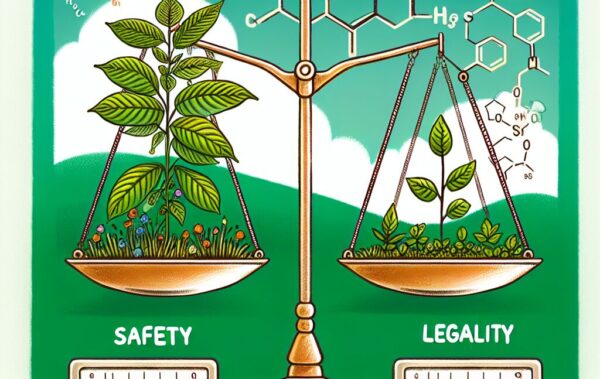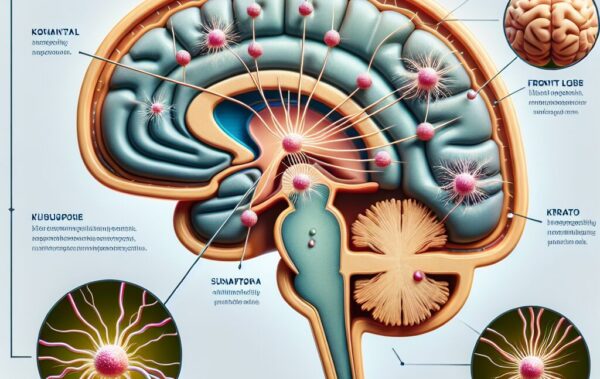- Understanding insomnia and its effects
- Overview of kratom as a potential sleep aid
- Common types of sleeping pills for insomnia
- Comparing the efficacy of kratom and sleeping pills
- Safety considerations and potential interactions
Insomnia is a common sleep disorder that affects millions of people worldwide. It is characterized by the inability to fall asleep, stay asleep, or both, leading to non-restorative sleep and a significant impact on one’s daily functioning and quality of life. Those who suffer from insomnia often experience symptoms such as fatigue, difficulty concentrating, mood disturbances, and decreased performance in work or at school. Insomnia can be acute, lasting for a few days or weeks, or chronic, when it persists for a month or longer.
Chronic insomnia may lead to long-term health consequences, including an increased risk of cardiovascular diseases, obesity, depression, anxiety, and cognitive impairments. In addition, insomnia can lead to a reliance on sleep aids and medications, which may come with their own set of side effects and potential for dependency.
With an ever-growing interest in alternative medicine and herbal remedies, kratom has come into the spotlight as a potential sleep aid. Kratom is a tropical evergreen tree from Southeast Asia, whose leaves contain compounds that can have psychoactive and pharmacological effects. Traditionally, kratom has been used for its pain-relieving, mood-enhancing, and sedative properties, which may contribute to its appeal for those struggling with insomnia.
When considering the use of kratom as a sleep aid, it’s essential to understand the different strains available. Not all kratom is created equal, with strains like Red Vein Kratom, commonly found in categories such as Red Vein Kratom powder, offering more sedative effects compared to the stimulating properties of White or Green Vein Kratom. As such, those seeking a kratom variety to aid with sleep may prefer products such as Red Vein Kratom capsules, known for their potential to promote relaxation and ease.
Though there is promising anecdotal evidence regarding kratom’s effectiveness for improving sleep, scientific studies on kratom as a sleep aid are still limited. Thus, those interested in exploring kratom as an alternative to traditional sleeping pills should proceed with caution, considering dosage, strain selection, and the timing of consumption. It is advisable to start with smaller doses of strains recommended for their sedative properties, and monitor your body’s response carefully.
While kratom may offer a natural alternative to sleeping pills for managing insomnia, it is crucial to acknowledge that just like conventional medications, it is not without risks or side effects. Understanding the full gamut of kratom’s effects and potential interactions with other medications or conditions is essential and will be further discussed in upcoming sections, such as “Safety considerations and potential interactions.”
Overview of kratom as a potential sleep aid
Kratom, a plant native to Southeast Asia, has garnered significant attention for its potential as a natural sleep aid. Mitragyna speciosa, as it is scientifically known, has historically been used in its indigenous cultures as a remedy for various ailments. One of the most appealing uses of kratom in the western world is its purported ability to assist those with insomnia, potentially providing a more natural alternative to synthetic sleeping pills.
The effectiveness of kratom as a sleep aid is largely attributed to the presence of certain alkaloids within its leaves, primarily 7-hydroxymitragynine and mitragynine. These compounds interact with the body’s opioid receptors but differ from conventional opioids in their effects and risk profile. For those seeking to explore kratom as an alternative for insomnia, various presentations are available such as kratom powder, capsules, tea bags, and liquid extracts.
Particularly noteworthy are the sedative qualities of certain strains, like the Red Vein Kratom mentioned previously. These strains tend to have a higher concentration of sedating alkaloids, making them especially relevant for those with sleep issues. In contrast, White and Green Vein Kratom strains might offer more energizing effects, thus being less suitable as a sleep aid but possibly beneficial for improving daytime energy levels and combating fatigue, another symptom often associated with poor sleep.
Nevertheless, kratom’s use should not be approached without due consideration. Factors such as individual metabolism, concurrent health issues, and current medications should all be reviewed when contemplating kratom’s incorporation into a nightly routine. Just like with any sleep aids, including herbal remedies, it’s highly recommended to consult with a healthcare professional, especially in the case of severe or chronic insomnia, to ensure it’s a safe option for you.
The cultural and historical context of kratom’s use underscores the important relationship between natural substances and sleep. As society continues to explore the boundaries of herbal remedies, including the potential benefits of kratom, such insights become particularly salient. In the following sections, we’ll delve deeper into the various types of sleeping pills commonly prescribed for insomnia, weigh the relative efficacy of kratom against these medications, and address the crucial safety considerations associated with their use.
Common types of sleeping pills for insomnia
As we delve into the topic of sleeping pills, it’s important to recognize the variety of options available for those grappling with insomnia. Typically, when you think of sleep aids, you might picture prescription sleeping pills—also known as sedatives or hypnotics. These drugs are often prescribed by physicians to help manage both acute and chronic insomnia.
Benzodiazepines are one such category that has been widely prescribed. Drugs like temazepam (Restoril), lorazepam (Ativan), and clonazepam (Klonopin) fall into this class and are known for their anxiety-reducing and muscle-relaxing effects, which in turn can promote sleep. However, they are generally recommended for short-term use due to their addictive potential and the risk of developing a tolerance.
Another group of sleep medications includes the so-called “Z-drugs,” such as zolpidem (Ambien), zaleplon (Sonata), and eszopiclone (Lunesta). They act on the same GABA receptors as benzodiazepines but are thought to have fewer side effects and a lower risk of dependency. Yet, these can still cause issues such as sleepwalking and next-day grogginess for some people.
Antidepressants can also be prescribed off-label for sleep disturbance, especially when insomnia coexists with depression or anxiety. Examples include trazodone, mirtazapine (Remeron), and doxepin (Silenor). Interestingly enough, some of these medications are prescribed in lower doses for sleep than for treating depression.
There are also over-the-counter (OTC) sleep aids that often contain antihistamines like diphenhydramine (Benadryl) or doxylamine succinate. While these can be effective for occasional sleepless nights, they aren’t intended for long-term use, as they can cause drowsiness the following day and may lose their effectiveness over time.
For those who are hesitant to use prescription or OTC drugs, herbal remedies and supplements have become a popular alternative. Besides kratom, melatonin supplements, valerian root, and magnesium have been heralded for their potential to improve sleep quality. Each of these options behaves differently in the body and may or may not be effective depending on the individual user.
When considering the various types of sleeping pills, it’s clear that there is no one-size-fits-all solution for insomnia. Many factors including the cause of insomnia, duration of symptoms, and individual health profile play a critical role in determining the most appropriate choice. It’s also crucial to discuss any sleep aid, whether prescription or herbal, with a healthcare professional to understand the implications for your overall health and sleep-wellness journey.
Choosing the right sleep aid often involves a process of trial and error, and while kratom has been pointed out as a natural alternative, the science behind its use for sleep is still in its nascent stages. Exploring products such as kratom capsules or kratom tea bags may be an option for those seeking a more organic approach to battling sleepless nights.
Comparing the efficacy of kratom and sleeping pills
 When individuals consider taking kratom or sleeping pills to address their insomnia, a fundamental question arises: Which is more efficacious? The answer is far from straightforward as efficacy can be subjective and varies greatly based on the user’s specific needs, health condition, and preferences.
When individuals consider taking kratom or sleeping pills to address their insomnia, a fundamental question arises: Which is more efficacious? The answer is far from straightforward as efficacy can be subjective and varies greatly based on the user’s specific needs, health condition, and preferences.
Kratom, with its diverse alkaloid profile, most notably in strains such as Red Vein Kratom, is reported by many users to provide a calming effect conducive to sleep. It operates by affecting the opioid receptors in the brain, which can lead to relief from discomfort, stress, and anxiety—factors often responsible for hindering sleep. Unlike traditional sleeping medications, kratom offers a more multifaceted potential benefit with pain-relieving and mood-enhancing properties.
On the flip side, sleeping pills are designed with the primary intent of inducing sleep. They act on neurotransmitter systems within the brain, such as GABA, to slow down neural activity and allow for a quicker onset of sleep. In terms of clinical studies and controlled trials, sleeping pills generally have a more established track record compared to kratom. Medications like Z-drugs are widely recognized for their ability to help patients fall asleep and have proven efficacy in scientific studies.
However, effectiveness also needs to be measured alongside considerations such as side effects, potential for addiction, and impact on sleep quality. For instance, while certain sleeping pills effectively induce sleep, they may alter sleep architecture, potentially leading to less restorative sleep. Furthermore, concerns about dependency and tolerance build-up with prolonged use of pharmaceutical sleep aids are significant points to consider. Kratom, despite its potential, also comes with warnings, as excessive or improper use can lead to undesirable side effects or dependency.
- Individuals who prefer a natural remedy may find kratom to be a suitable alternative.
- The need for an analgesic in addition to a sleep aid might tilt the preference towards kratom.
- Those with a history of addiction or who are taking other controlled substances might be steered away from certain sleeping pills.
- Concerns about possible side effects of pharmaceuticals, such as grogginess or cognitive impairment, may lead to the use of a gentler product like kratom tea bags.
- Ultimately, the short and long-term effects on health and sleep patterns are paramount when choosing between kratom and traditional sleep aids.
The conversation regarding the efficacy of kratom versus sleeping pills isn’t fully resolvable without more extensive research into kratom’s effects on sleep. But in the current landscape, a blend of scientific data, anecdotal reports, and personal health considerations influence each individual’s decision. Those curious about kratom’s viability as a sleep aid can begin their exploration with products like kratom liquid extracts or Red Vein Kratom powder, known for their sedative properties.
| Kratom | Sleeping Pills |
|---|---|
| May have pain-relieving and mood-enhancing benefits in addition to promoting sleep | Primarily designed to induce sleep with potential for deeper sedation |
| Lacks extensive controlled research on its efficacy as a sleep aid | Widely studied with a well-documented profile of effects and effectiveness |
| Potential for addiction and side effects with misuse or overuse | Risks of dependency, tolerance, and altered sleep architecture with long-term use |
With an increased understanding of the various mechanisms of action and individual responses to both kratom and sleeping pills, we embark on weighing the merits and demerits of each option in an informed manner. To draw more definitive conclusions on efficacy, the scientific community and healthcare providers must continue investigating all aspects of these sleep aids. As for consumers, vigilance and a personalized approach to insomnia treatment are key in navigating these choices.
As we conclude our discussion of kratom in comparison to sleep medications, the broader implications for safety, side effects, and potential drug interactions come to the forefront. In the following section titled “Safety considerations and potential interactions,” we will delve into these critical aspects to provide a comprehensive view of the use of kratom and sleeping pills as potential solutions for individuals suffering from insomnia.
Safety considerations and potential interactions
When exploring the domain of herbal remedies such as kratom and conventional sleeping pills for combating insomnia, it’s vital to tread with caution and thorough understanding. While kratom and sleep aids offer the allure of restful slumber, their safety profiles and potential interactions with other medications and health conditions are matters that simply cannot be overlooked.
Primarily, when it comes to mitigating the risks associated with kratom, the key is moderation and awareness of its various effects. As a natural compound, kratom does interact with opioid receptors, which brings about a layer of complexity regarding its use. Care should be taken, particularly when used concurrently with other substances that act on the central nervous system, as this could lead to additive sedative effects or higher risk of adverse reactions.
In the specific context of opioids or central nervous system depressants such as benzodiazepines, barbiturates, or alcohol, the combined use with kratom can present significant safety concerns. These may include profound sedation, respiratory depression, and an increased risk of a fatal overdose. Therefore, individuals already on these medications should avoid using kratom or only do so under the close supervision of a healthcare provider.
Similarly, sleeping pills come with their own set of interaction risks and side effects. For instance, individuals taking sleeping pills should be cautious about consuming alcohol, as this too can amplify the drug’s sedative effects and impair respiratory function. Additional vigilance is warranted for those who are on other sedatives, certain antidepressants, or muscle relaxants, which can interact with sleeping pills leading to excessive drowsiness or cognitive impairment.
Herbal remedies are often mistakenly believed to be entirely safe since they are ‘natural.’ However, like any pharmacologically active substance, they too should be scrutinized for potential interactions. For example, kratom has been known to interact with drugs metabolized by the liver’s CYP450 enzyme system, altering the effectiveness and safety of both the kratom and the co-administered drug.
Furthermore, kratom’s status as a supplement rather than a regulated medication raises concerns about the consistency and purity of products on the market. It’s important for consumers to obtain kratom from reputable sources, such as certified kratom shop pages, that provide third-party testing to ensure quality and safety. The concern is not just about kratom per se but about contaminants or adulterants that could lead to unexpected health effects or interactions.
From a safety perspective, the physical and mental health of the individual must be taken into account. For example, individuals with pre-existing liver illnesses are generally advised to avoid using substances that require hepatic metabolism, which includes many sleeping pills and possibly kratom.
Those with mental health disorders need to be careful as well. Sleep aids, including kratom, can cause or worsen psychiatric symptoms in susceptible individuals. It’s critical to consult with a mental health professional before starting any new sleep regimen, especially for those with a history of mood disorders, psychosis, or substance abuse.
Lastly, potential interactions aren’t limited to pharmaceuticals. Lifestyle choices, such as diet and other supplements, can influence the efficacy and side effects of sleep aids. For instance, heavy meals close to bedtime can affect drug absorption, while supplements like St. John’s wort may interact with both kratom and sleeping pills, potentially leading to a reduction in efficacy or increased side effects.
In summary, both kratom and sleeping pills warrant careful consideration and responsible use, respecting their potential for interactions and side effects. While the quest for a good night’s sleep is universal, the approach to achieving it should be carefully personalized, balancing the risks and benefits with informed choices and professional guidance. Moving forward, it’s pivotal that individuals consult with healthcare professionals when deciding to integrate either kratom or sleeping pills into their sleep routines. This step is critical to navigating the use of these sleep aids safely and effectively.









